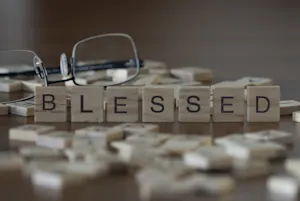What Makes This Word Tick
"Supercilious" carries an air of arrogance with a touch of disdain. It's a word often used to describe someone who behaves as though they are superior to others. A condescending glance or a dismissive remark are hallmarks of the supercilious personality. Imagine someone looking down their nose at the world — that's superciliousness wrapped up in a bow.
If Supercilious Were a Person…
They’d probably be the sort who silently judges your preference for instant coffee over a freshly brewed espresso. In social situations, they might have that notorious lifted eyebrow when confronted with something they deem beneath them. Yet, it's likely that their wardrobe is faultless and their conversational skills are sharp, albeit wrapped in condescension.
How This Word Has Changed Over Time
While "supercilious" has consistently implied haughtiness, its usage has become more metaphorical over time. Originally, the word's Latin roots focus on physical superiority, with "cilium" referring to the eyelid — so the word subtly connects to facial expressions. Today, the word has meandered into everyday language to denote not just how people act but sometimes how they view certain ideas or trends, with a skeptical eyebrow always ready.
Old Sayings and Proverbs That Use Supercilious
Proverbs using "supercilious" may be hard to come by, but the sentiment is captured by phrases like "Pride goes before a fall." Such maxims remind us that arrogance often leads to one's undoing, a fitting end for the supercilious in literature and life alike.
Surprising Facts About Supercilious
Did you know that "supercilious" was first recorded in English in the early 16th century? It's had quite the journey from its Latin origins, "superciliosus," suggesting its longstanding role as a descriptor for lofty attitudes. Additionally, its connection to eyebrow-raising gestures has stood the test of time, bridging ancient expressions to contemporary snobbery.
Out and About With This Word
Supercilious personalities commonly make appearances at pretentious cocktail parties and exclusive yacht clubs. They might also be found critiquing modern art installations with a smirk. Anywhere there's an air of exclusivity, you'll likely find at least a smattering of superciliousness.
Pop Culture Moments Where Supercilious Was Used
Fans of classic literature might recall Mr. Darcy from "Pride and Prejudice" — at least in his initial impressions. His aloof and superior demeanor screams supercilious until he reveals the softer, more humble man beneath.
The Word in Literature
Supercilious characters make great antagonists in novels, creating friction with their often unjustified sense of superiority. Think along the lines of Miss Bingley in "Pride and Prejudice" or Draco Malfoy in the "Harry Potter" series, where their snobbery is center stage.
Moments in History with Supercilious
Many historical figures have been painted with the brush of superciliousness. Picture an aristocrat surveying peasants from a gilded carriage, confident in their place among high society. Or perhaps a more recent image, like a titan of industry maintaining a heady distance from the common worker, believing themselves untouchable.
This Word Around the World
While "supercilious" is a word with English origins, its essence resonates globally. In French, "hautain" conveys a similar attitude; in Italian, you might use "altezzoso." Non-verbal gestures like haughtily lifted eyebrows are universally understood, even without a direct translation.
Where Does It Come From?
The word "supercilious" is derived from the Latin "superciliosus," itself coming from "supercilium," meaning "eyebrow" or "lid." This makes sense when considering the raised eyebrow often accompanying a supercilious glance, fusing physical expression with verbal disdain.
How People Misuse This Word
Sometimes "supercilious" is misapplied to merely confident individuals or those with high standards. True superciliousness involves a belittling view of others — it's not just about having high self-esteem or sophistication.
Words It’s Often Confused With
Arrogant: Though similar, arrogance is more about self-importance, whereas supercilious is tinged with disdain.
Pompous: Pompous individuals are self-important and grandiose, but without the sneering attitude of the supercilious.
Haughty: Very close in meaning, but haughty can be less about the expression and more about the attitude of superiority.
Additional Synonyms and Antonyms
Synonyms: Conceited, overbearing, condescending
Antonyms: Humble, modest, unassuming
Want to Try It Out in a Sentence?
"Despite his supercilious tone, she remained unfazed, confident in her own ideas and abilities."
















